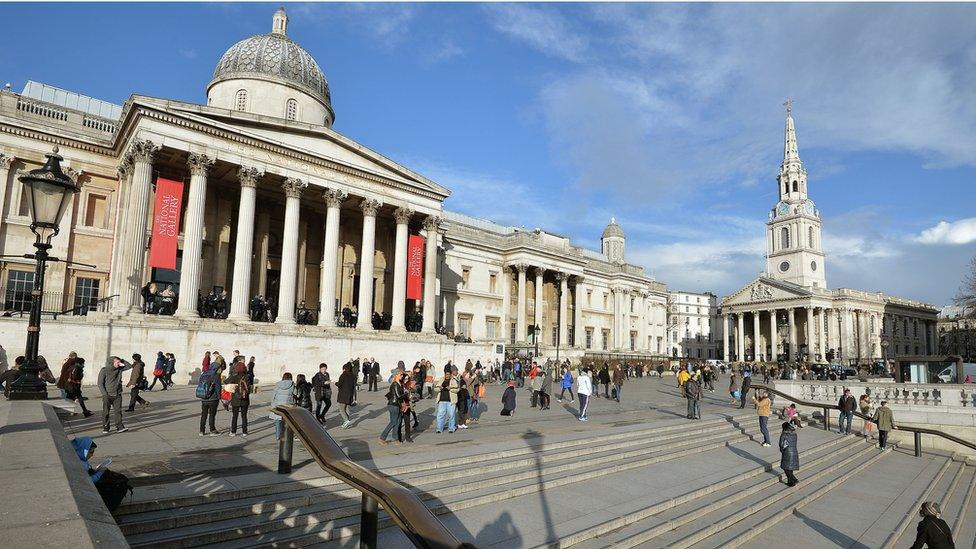Thousand-year-old town found under London's National Gallery
- Published
- comments

The National Gallery is a famous art gallery in London
Workers building a walkway beneath an art gallery in London have stumbled across evidence of an old Saxon town.
Ahead of their 200 year anniversary, The National Gallery ordered redevelopment of their museum in Trafalgar Square.
As construction workers dug beneath the gallery, they came across a number of artefacts, and alerted archaeologists.
University College London continued the excavation, and discovered evidence of an old Saxon settlement called Lundenwic.
The Archaeology South-East team from University College London continued excavations near the gallery
Archaeologists already knew about the existence of Lundenwic, which was a 7th century Saxon settlement.
But they did not know how far the settlement reached, until now.
Senior archaeologist Stephen White, part of the Archaeology South-East team who led the excavation, said "the urban centre of Lundenwic extends further west than originally thought".
It was established about a mile west of the Roman town Londinium, which had been founded hundreds of years before in 47 BC.
London's history can be traced back thousands of years to Roman times - this picture shows part of a Roman fort in London dating back to AD 120.
The archaeologists came across a fireplace hearth, which they were able to date to between 659 and 774.
London students were also given the opportunity to witness the archaeological dig in progress.
Stephen White said the excavations were made "all the more exciting" by involving "young people from this city."
National Gallery project director Sarah Younger said it was an "honour" for The National Gallery to be involved, adding the gallery's redevelopment will also "be part of the fabric and history of London for centuries to come".
